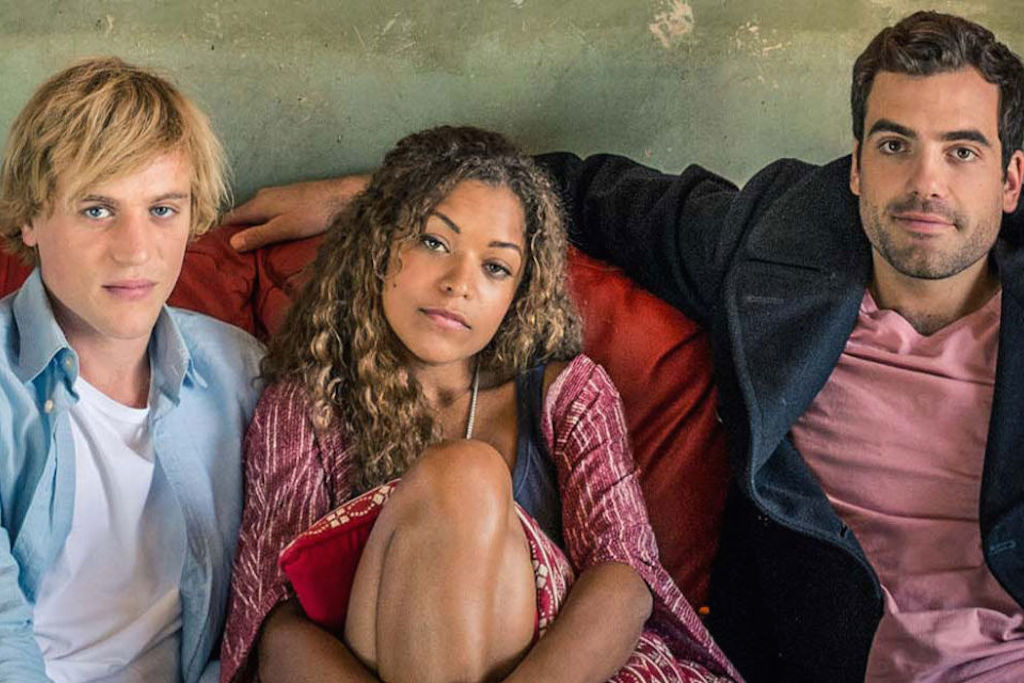If You Like Classic British Rom-Coms, You’ll Fucking Love Netflix’s ‘Lovesick’
It's about love, life and STIs.

Tracking down every single one of your ex partners and solemnly informing them that they might have chlamydia sounds like one of the most unenjoyable pastimes known to mankind. It’s also the premise of Netflix’s British rom-com, Lovesick, a surprisingly sweet tale of romance and STIs that throws back to the golden era of Hugh Grant-style romantic comedies.
It sounds like it could be a tortured premise, but it’s really just a handy way to structure an interesting love story.
Flashback To The Present
Lovesick’s central premise is more than a cute gimmick, it’s the spine that supports what could have been a meandering plot through an endless series of barely distinguishable girlfriends, like a Barney Stinson side story on How I Met Your Mother.
The framework consists of our protagonist, the handsome if somewhat sappy Dylan (Johnny Flynn) tracking down each of his potentially chlamydial infected ex-girlfriends. Each episode splits the story between the flashback of the old relationship and the present day, providing an ingenious technique at updating what could be a tired format.
We’ve had way too many comedy sitcoms about groups of friends in their 20s or 30s living in a house and having issues with love. Dylan, his mates Luke (Daniel Ings) and Evie (Antonia Thomas) and their friendship form the emotional centre of the show, but we’re used to that in sitcoms by now.

What’s fresh about Lovesick is its clever way of piecing together a story, and of focusing purely on a romantic arc in a way that doesn’t feel forced. We drop in and out of the romantically important moments in Dylan’s life, while ignoring almost every other part, and the storyline still manages to flow.
You can’t help but compare the format to a film like Love Actually or Bridget Jones’s Diary, which similarly constructs a lattice to hang all the romantically charged moments from, while ignoring all the annoying moments of mundanity. But the rom-com that Lovesick is probably the most similar to would be Four Weddings and a Funeral, which works so well partly because of the structure of its titular events.
Much like Hugh Grant muttering his way through four romantically charged weddings (and one devastating funeral), Dylan takes us on a journey through every date, hookup, affair and love-disaster. In fact, the very first episode of Lovesick is set at a wedding that could have been taken straight from Four Weddings with almost no adaptation.
Classic British Talking Woes
The trope of the buttoned-up British love story is more than just an excuse to trot out Hugh Grant and his charming stuttered affections — it’s a function of what makes classic British rom-coms a unique genre of their own.
In Four Weddings and a Funeral, none of the romantic tension would be possible without Hugh Grant’s character maintaining a stoic emotional facade and refusing to acknowledge his feelings. There’s a piece of dialogue in the film that helps explain this idea:
Charles: Do you think there really are people who can just go up and say, “Hi, babe. Name’s Charles. This is your lucky night?”
Matthew: Well, if there are, they’re not English.
It’s so uniquely British — in other rom-coms, it has to be shyness or outside factors that provide the block, rather than a mutually understood national obsession with primness. In Lovesick, they double-down on this trope almost excessively. Dylan is honestly obsessed with his romances, yet still, when it comes to the crunch, unable to tell his friend Evie that he has feelings for her.
As Luke says, “Dylan is very connected with his feelings,” to which Dylan replies: “Yes, mainly rage and shame and feeling like a fucking idiot.”

It’s A Bloody Cheeky Show
Here’s the thing that people often forget — the golden era of rom-coms have always been dominated by ribald and rude humour.
Lovesick follows this trend. It was even originally titled “Scrotal Recall” which is frankly an upsettingly bad name, but I guess is an indication of the depth of depravity the tone of this show can get to.
Lovesick (on Netflix) is very very good. Very sad that it took me so long to get to it, but surely due to the fact that it was originally (and misleadingly) titled "Scrotal Recall."
— Lisa Lucas (@likaluca) January 31, 2018
Lovesick enjoys some great verbal quips, but it really shines during the outlandish comedic situations that it thrusts its hapless protagonists into: a great example is the scene in a doctor’s office after Dylan manages to break an ex’s finger with his own butthole, or the marvellously absurd moment when Luke locks eyes with a deer and finds inner peace while trying to poop in the forest.
Lovesick can be a show of dazzling extremes, sneakily inserting a moment of real emotional tenderness right in the middle of a scene of high absurdity. There are two quotes that can help summarise this breakdown, this spectrum of the hope and horror of romance.
The first: “Finding love is all heartbreak, disappointment, and misery… until it isn’t.”
The second: “It’s all wonderfully British, isn’t it? Sexual confusion and binge drinking.”
—
Lovesick is currently streaming all three seasons on Netflix.
—
Patrick Lenton is an author and Staff Writer at Junkee. He Tweets @patricklenton.